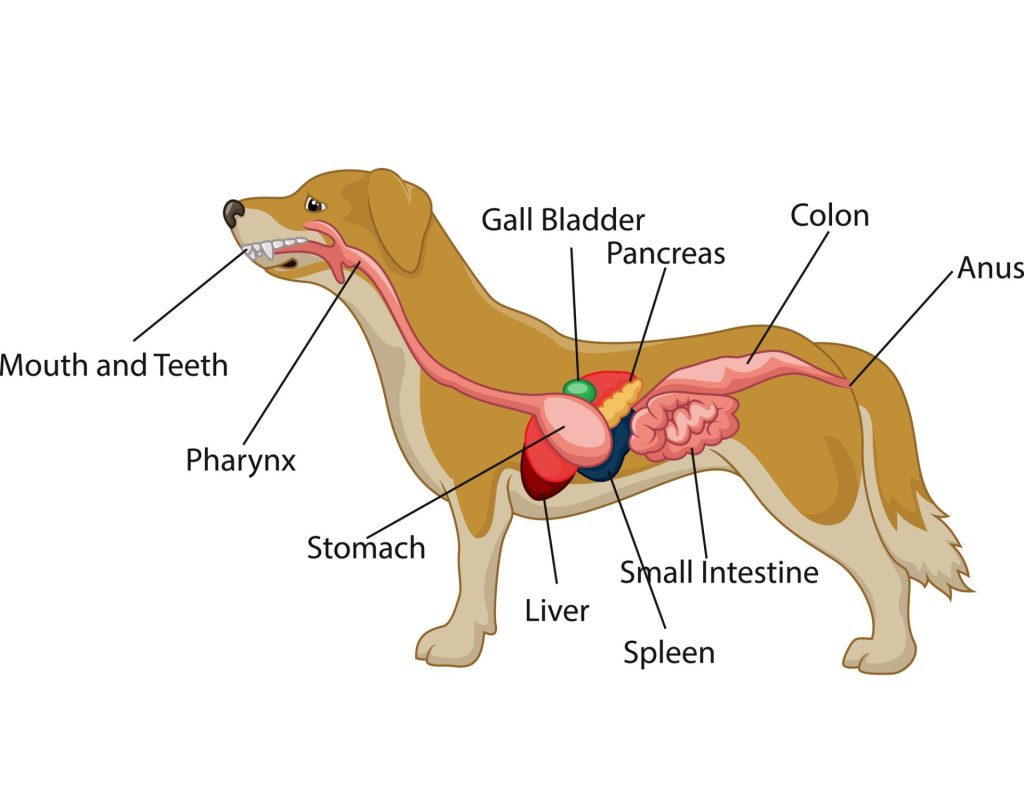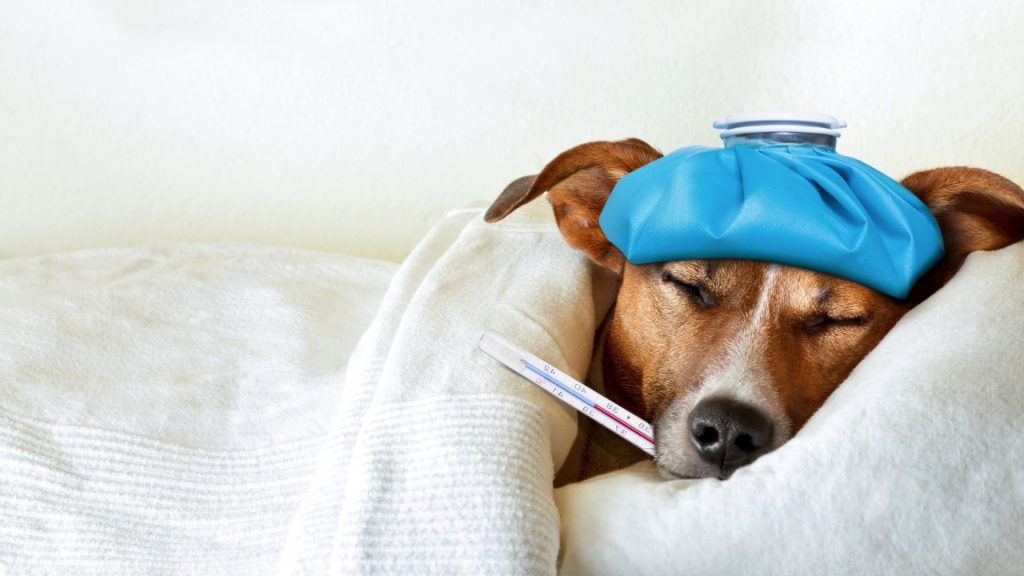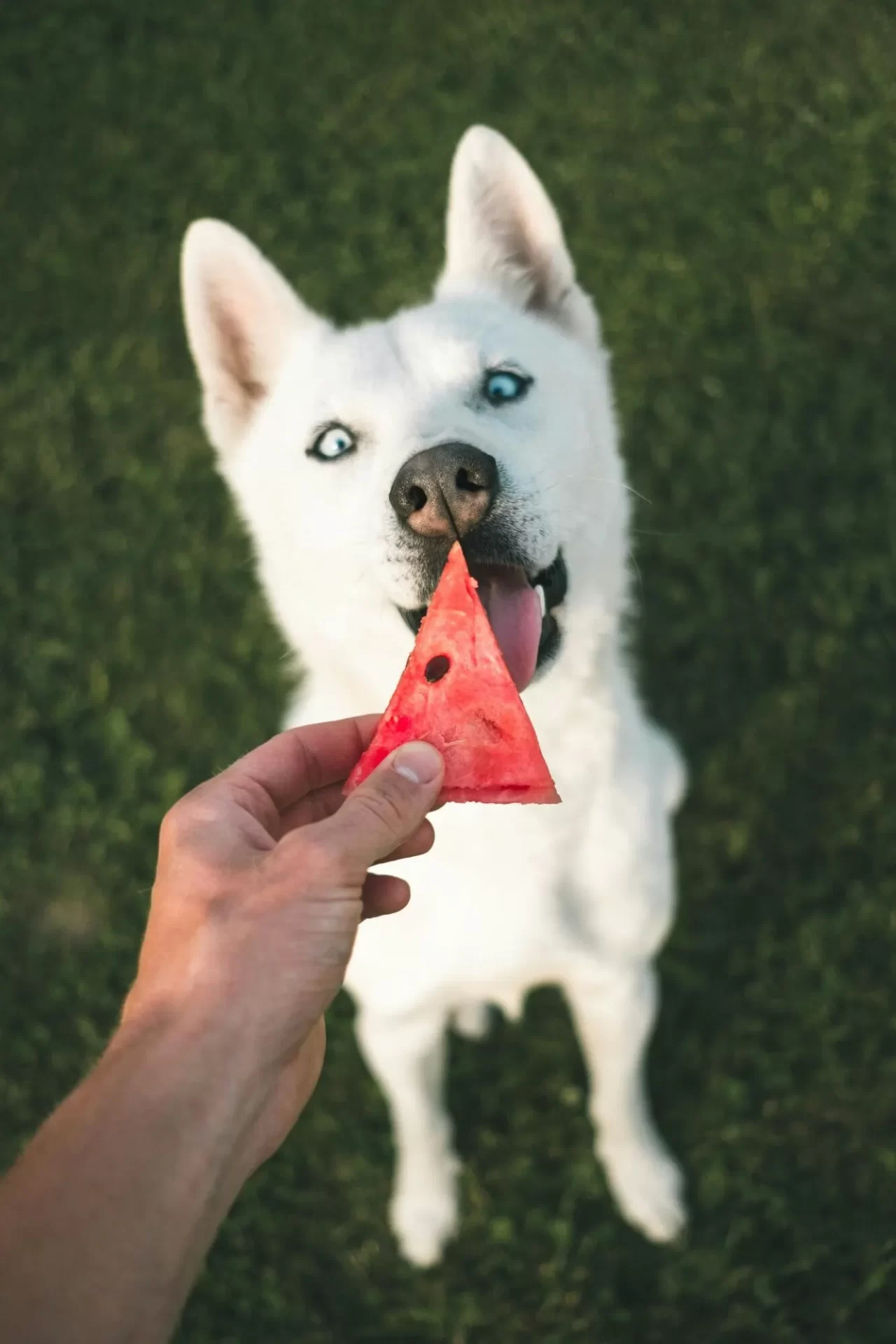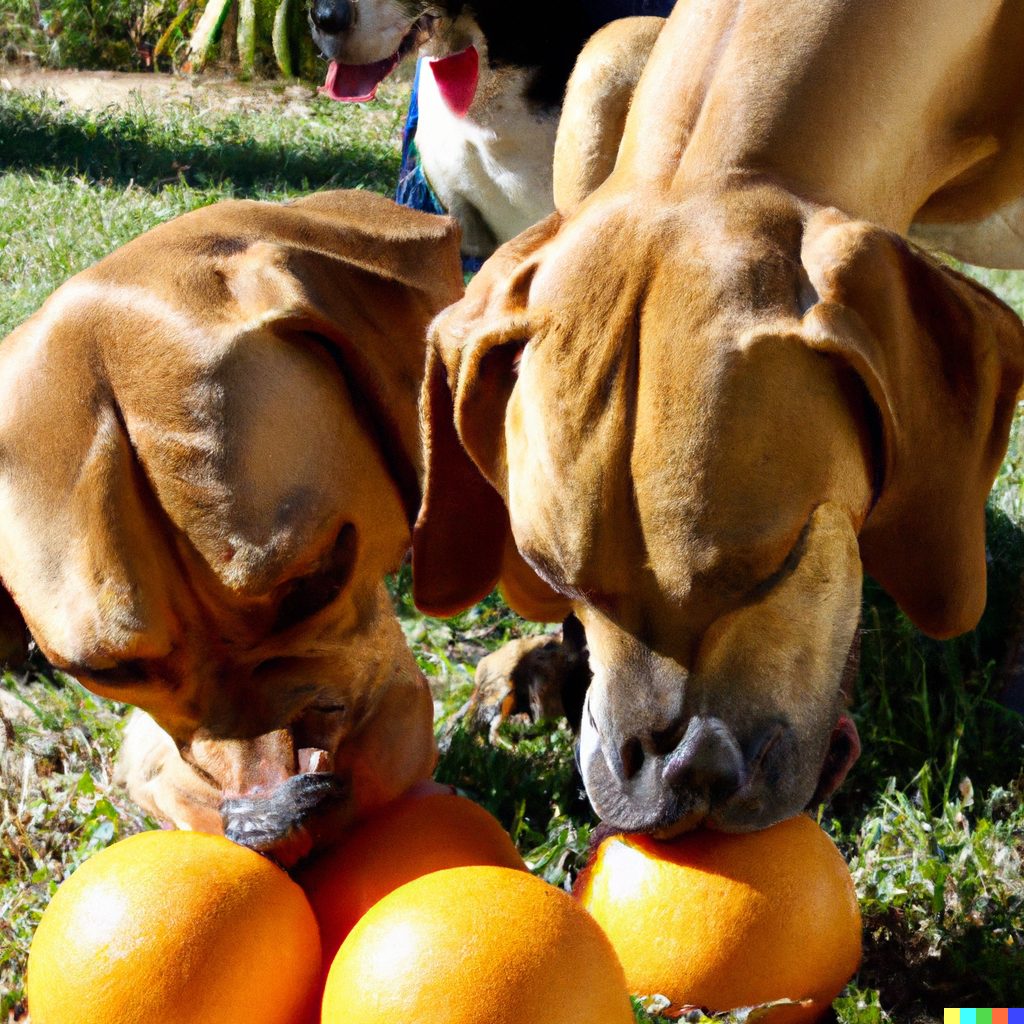Can popcorn cause diarrhea in dogs? This in-depth guide explores how popcorn affects canine digestion, ingredients to avoid, serving tips, and what to do if your dog gets sick from eating popcorn.
Many dog owners love treating their pups to popcorn as an occasional snack. Popcorn can seem like a healthy, low-calorie choice for dogs. But is it truly safe? Can eating popcorn cause diarrhea or other issues in canines? This article will explore the reasons of Can Popcorn Cause Diarrhea in Dogs poop. We’ll cover popcorn’s effects on dog digestion, ingredients to be aware of, serving tips, and what to do if your dog gets sick from popcorn.
How Does Popcorn Affect a Dog’s Digestive System?

To understand if popcorn can cause stomach upset in dogs, it helps to look at how it impacts digestion. There are a few aspects of popcorn that are important to consider regarding a dog’s gastrointestinal (GI) system:
High Fiber Content
Plain popcorn is a whole-grain food that contains a fairly high amount of fiber. The fiber content derives mainly from the hulls or outer shell of the popcorn kernel. Fiber plays an essential role in digestion by adding bulk to stool and promoting regular bowel movements.
However, too much dietary fiber can overwhelm a dog’s digestive system. Dogs’ GI tracts produce fewer enzymes capable of breaking down plant materials compared to humans. Their stomachs and intestines can only process a certain amount of fiber effectively.
Eating very fibrous foods like popcorn may put a strain on a canine’s digestive system. Excessive fibrous foods can cause loose stools, diarrhea, or even constipation in dogs.
Roughage and Irritation
In addition to extra fiber, the hulls or outer shells of popcorn kernels provide considerable roughage. These coarse, irregular structures can irritate the sensitive lining of a dog’s gastrointestinal tract during digestion.
This aggravation may stimulate excessive mucus production and influence bowel motility patterns. Too much roughage from popcorn hulls can make stools loose or urgent.
High-Fat Content
While air-popped popcorn is low-calorie, most microwave and movie theater popcorn is loaded with saturated fat and oils. Diets high in fatty foods are harder to break down for dogs and may cause nausea, vomiting, diarrhea, and pancreatitis.
The high levels of fat and added flavoring oils in snack popcorn exceed what a dog’s digestive tract is designed to handle. Eating a lot of fatty popcorn can upset your dog’s stomach.
So in summary, the high fiber, roughage, and fat content of popcorn make it a food that requires caution when feeding to dogs. Too much popcorn could overwhelm your dog’s GI tract and cause digestive issues like diarrhea or vomiting. Monitor serving sizes and avoid extra butter and oils.
Read also: Why Am I Craving Chocolate Milk
Can Unpopped Kernels Hurt Dogs?

One clear risk of feeding popcorn to dogs is unpopped, dried kernels. Hard, unpopped corn can pose a major choking hazard, especially in small dog breeds.
Ingesting unpopped kernels also comes with the risk of damaging or puncturing the delicate lining of the esophagus, stomach, or intestines. Any kernel small and hard enough to avoid chewing could potentially obstruct or wound the GI tract.
To minimize this danger, thoroughly chew up and inspect all popcorn given to dogs, looking carefully for any un-popped kernels. Never leave dogs unsupervised with a bowl of popcorn, as they may gobble it up hastily.
Removing unpopped kernels and being vigilant when feeding popcorn is key to preventing choking hazards or intestinal perforations, which can be fatal if not treated immediately.
Signs of Stomach Upset in Dogs After Eating Popcorn

If you suspect popcorn caused tummy troubles for your pup, here are some common symptoms of stomach upset in dogs to look out for:
- Vomiting
- Diarrhea or loose, urgent stools
- Loss of appetite
- Excessive gas
- Abdominal pain or bloating
- Changes in behavior like appearing lethargic or irritable
- Refusing to eat
- Increased water consumption
Diarrhea may appear as semi-formed, very soft stools or be completely liquid. It may contain bits of undigested food. Blood in the stool indicates bleeding in the GI tract and requires prompt veterinary attention.
If diarrhea persists for more than 24 hours, becomes severe, or is accompanied by concerning symptoms like vomiting or lethargy, consult your veterinarian right away. Puppies, smaller dogs, and elderly dogs are most prone to dehydration from fluid loss caused by diarrhea.
Mild, temporary diarrhea will often resolve on its own as the irritation from digestion passes. Withhold food for several hours and reintroduce bland foods like cooked rice and chicken. Avoid dairy products, spices, oils, and sugary foods during stomach upset.
Be alert for symptoms worsening or persisting over 24 hours and seek veterinary guidance as needed. Catching cases of acute diarrhea early greatly helps prevent dangerous fluid loss in dogs.
Tips for Safely Feeding Popcorn to Dogs
While moderation is key, popcorn does not need to be completely off-limits for dogs. Here are some tips for safely incorporating popcorn as an occasional snack:
- Use plain air-popped or stovetop popcorn – avoid microwave popcorn with butter, salt, and flavoring oils. Opt for bland popcorn free of seasoning.
- Pick out all unpopped kernels – thoroughly inspect and remove any hard kernels before serving to eliminate choking risk.
- Limit portion size – stick to 1-2 cups of popcorn max for a large dog, less for smaller breeds. Too much can upset the stomach.
- Avoid giving buttery topping – spillover oil and butter can cause pancreatitis. Popcorn itself has enough fat.
- Supervise eating – ensure your dog fully chews each bite rather than gulping down popcorn. Watch for any swallowing difficulties.
- Introduce slowly – transition fiber foods like popcorn gradually to allow the digestive system to adjust.
- Stay hydrated – make sure your dog has access to plenty of fresh water to aid digestion.
Follow these precautions and popcorn can be a safe, low-calorie snack for dogs to enjoy in moderation. Monitor stool consistency and your dog’s reaction after first trying popcorn. Adjust serving sizes appropriately if any digestive upset. Consult your vet if you have any concerns.
What to Do if Your Dog Has Diarrhea After Eating Popcorn
If your pup develops diarrhea soon after eating popcorn, here are some steps to take:
- Stop feeding popcorn – discontinue any further servings until stool returns to normal.
- Switch to a bland diet – give boiled chicken and rice for 1-2 days to rest the GI tract. Avoid fatty foods.
- Ensure adequate hydration – provide constant access to fresh, clean drinking water. Broth, Pedialyte, or coconut water can help replenish lost fluids and electrolytes.
- Watch for worsening symptoms – monitor for additional vomiting, blood in stool, or signs of dehydration like lethargy or loss of appetite. Seek prompt veterinary care if symptoms appear serious.
- Fast for 12-24 hours – allow the stomach to rest by withholding all food for at least half a day. Slowly reintroduce the normal diet afterward.
- Consider a probiotic – supplementing with a pet probiotic may help restore normal gut flora balance after diarrhea. Consult your vet on recommended brands and dosages.
- **Reassess popcorn as a snack **- if diarrhea persists, reconsider if popcorn should be removed fully from your dog’s snack list.
- Schedule a vet visit – if diarrhea lasts more than 1-2 days or seems severe, seek your veterinarian’s advice. They can check for dehydration and underlying issues.
Usually, cases of acute diarrhea will resolve on their own with basic at-home treatment. But contact your vet promptly about stomach upset lasting over 48 hours or accompanied by concerning symptoms. Take steps to prevent dehydration which can be dangerous for dogs.
Why Popcorn May Cause Stomach Upset in Dogs When Other Carbs Don’t
While many carbohydrates like rice, pasta, and bread are usually properly-tolerated with the aid of dogs, popcorn seems much more likely to cause digestive upset. There are a few motives why popcorn poses more digestion trouble in comparison to different grain-based totally foods:
- High fiber content – Plain popcorn is much higher in fiber than white rice, bread, and many other carbs. Too much fiber can overwhelm a dog’s digestive capacity.
- Rough, fibrous hulls – The seed hulls of popcorn are quite rough and abrasive. Their texture and shape make them more likely to irritate the GI tract compared to other smoother carbs when chewed.
- Quickly gobbled down – Dogs tend to eat popcorn hastily like a treat. This gives their GI system very little time to break down the fibrous kernels properly compared to slower-eaten meals.
- High-fat content – Buttered, oily popcorn and the added fats exceed what dogs can handle as well as plain carbohydrates like pasta or rice. Excess fat is difficult to digest for dogs and can cause pancreatitis.
- New food introduction – Any new food added suddenly to a dog’s diet can cause temporary digestive upset as their system adjusts. The gradual introduction of higher fiber items like popcorn reduces risk.
- Lack of chewing – Dogs often do not chew popcorn adequately before swallowing. This makes it more irritating to the stomach lining and colon compared to well-chewed carbs.
In general, the high fiber content, indigestible hulls, and high-fat varieties of popcorn make it more prone to disrupting a canine’s GI tract balance. Introducing popcorn slowly and monitoring for individual tolerance is recommended. Some dogs handle popcorn with no issue, while others are more sensitive.
Can Dogs Eat Popcorn Safely? Final Tips
So can dogs eat popcorn safely? Occasional popcorn in moderate amounts is normally fine for most dogs, provided some precautions are followed:
- Stick to 1-2 cups or less to limit fiber content
- Use plain, air-popped, or stovetop popcorn without butter or flavoring
- Pick out all unpopped kernels – they pose a choking hazard
- Introduce popcorn gradually mixed with their food
- Supervise eating and make sure they chew thoroughly
- Monitor stool health closely for any diarrhea
- Avoid giving popcorn to puppies under 1 year old
- Speak with your vet if your dog has a sensitive stomach
It is understandable to worry about popcorn causing harm, but not all dogs will experience adverse effects. Pay attention to any signs of digestive upset like diarrhea, vomiting, or lack of appetite. Discontinue feeding popcorn if these occur. Otherwise, occasional plain popcorn in moderation can be a safe treat.
The Bottom Line
Because of its high fiber content and fat, popcorn does come with some risk of disrupting digestion in dogs. Monitor your individual dog’s response carefully. However, prepared properly popcorn can be incorporated as an infrequent snack for many pets without issue. Serving plain, air-popped corn in small amounts minimizes risk.
Know the ingredients to avoid, watch for unpopped kernels, and introduce slowly. With some prudence and supervision, popcorn can be a safe, low-calorie dog treat option without causing diarrhea. Discontinue feeding if any signs of stomach upset. Check with your vet if ever uncertain about diet changes.

Jasper Bruxner is a passionate and versatile blogger with a keen eye for trends and a knack for crafting engaging content. As the founder of WendyWaldman, he has established himself as a trusted resource in a diverse range of niches, including food, tech, health, travel, business, lifestyle, and news. He tends to share the latest tech news, trends, and updates with the community built around Wendywaldman. His expertise and engaging writing style have attracted a loyal following, making him a respected voice in the online community.




